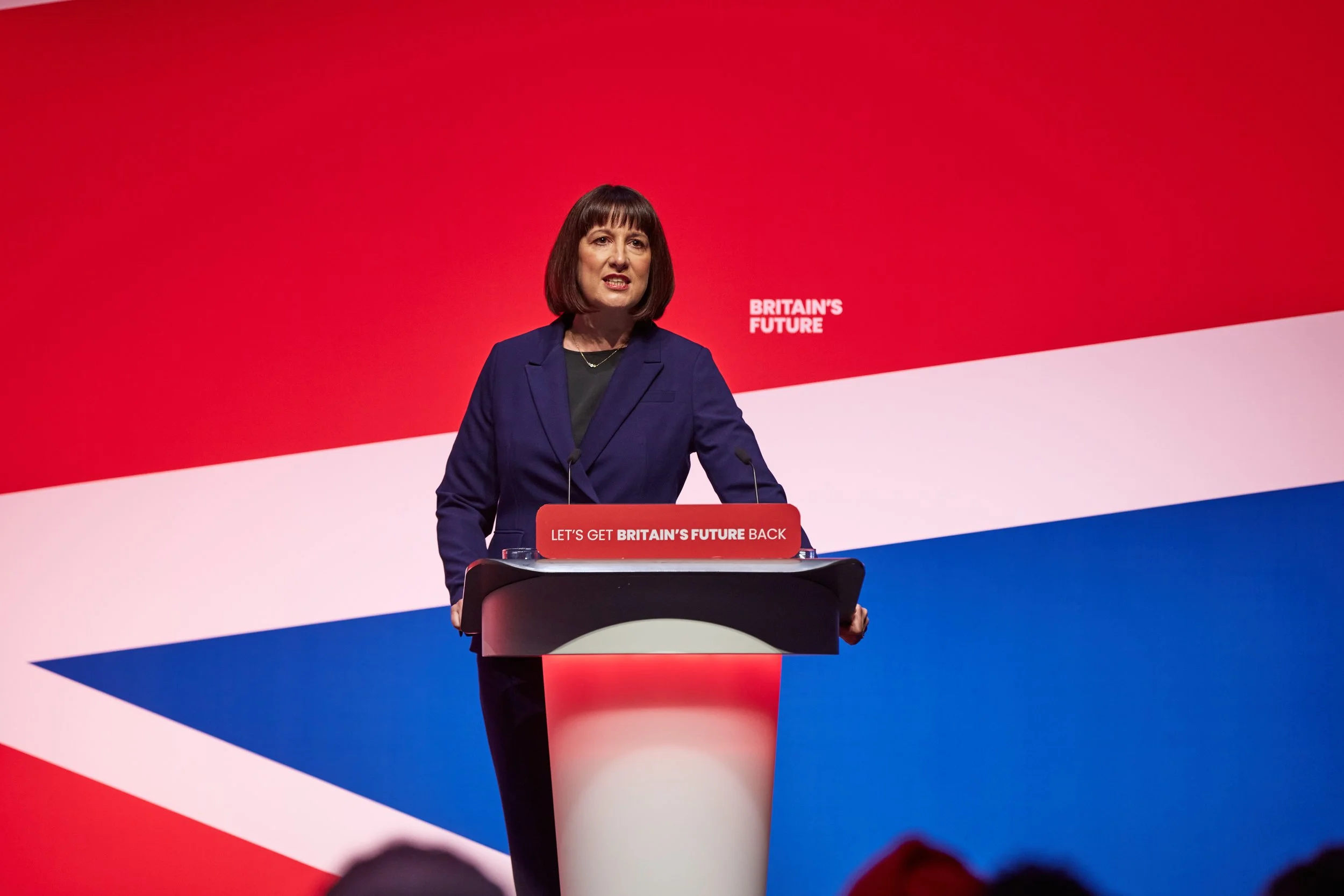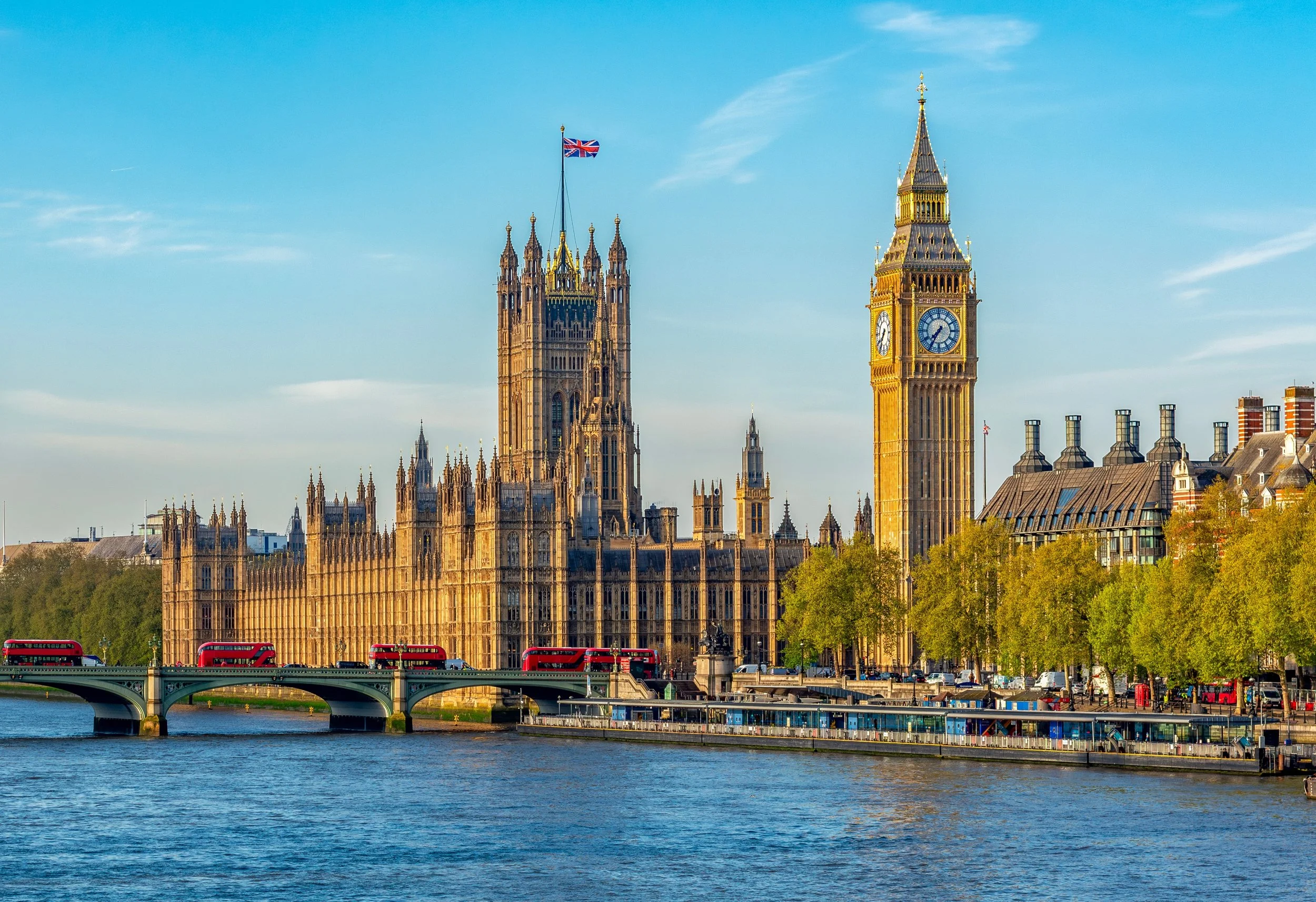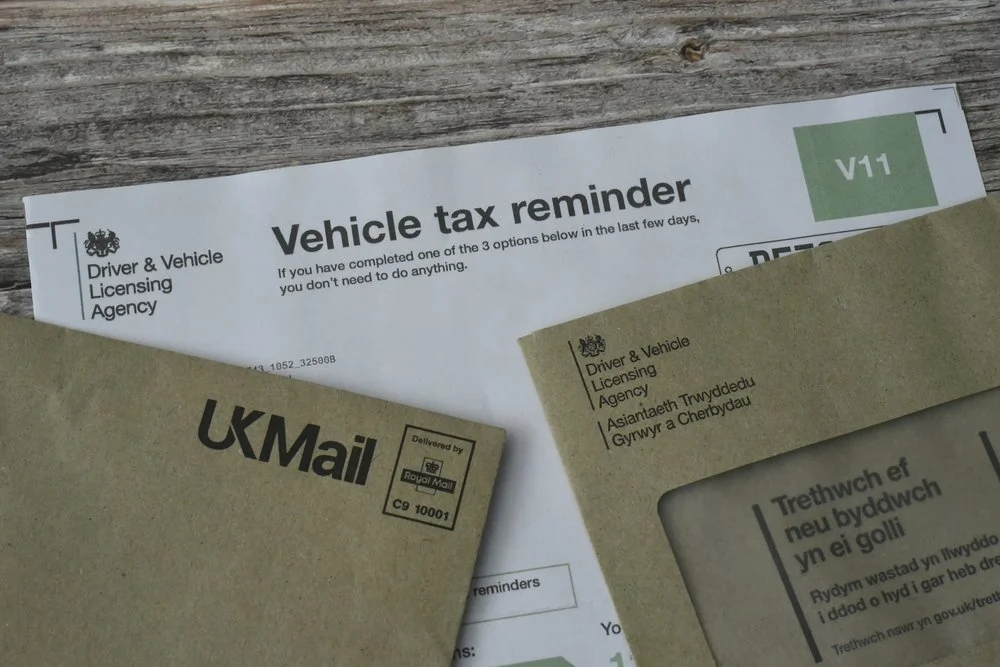Autumn Budget 2025: Salary Sacrifice Secured for the Future
Image Source: Shutterstock
Chancellor Rachel Reeves has officially confirmed that the Autumn Budget 2025 will take place on Wednesday, 26 November, providing the Office for Budget Responsibility with ten weeks to prepare comprehensive economic forecasts. The announcement underscores the government's commitment to delivering "an economy that works better for working people", as reported by ITV News.
Beyond the budget date confirmation, the automotive sector is already benefiting from substantial government investment in electric vehicle infrastructure and innovation. The UK's commitment to green initiatives includes continued support for workplace charging schemes and expansion of public charging networks, while government grants for electric cars remain available for specific sectors. With the 2030 ICE car ban firmly back in place and manufacturers already adapting their strategies, speculation around additional automotive incentives, enhanced charging infrastructure funding, and potential business fleet transition support continues to build momentum.
LATEST UPDATE (4 November 2025): Chancellor Rachel Reeves has confirmed that tax rises are coming at the 26 November Budget, stating "all will have to contribute" to repairing public finances. In an unprecedented pre-Budget speech, she laid the groundwork for further increases despite promising last year not to return with additional tax demands. The Treasury faces a £20 billion fiscal gap, with internal discussions centered on either a major income tax rise or multiple smaller tax increases across various areas.
Despite mounting fiscal pressures affecting pension salary sacrifice, cash ISAs, and potential road pricing reforms, electric car salary sacrifice remains firmly protected with BiK rates locked until 2029 and strong expectations for continued support to 2035.
Chancellor Rachel Reeves has officially confirmed that the Autumn Budget 2025 will take place on Wednesday, 26 November, providing the Office for Budget Responsibility with ten weeks to prepare comprehensive economic forecasts. The announcement underscores the government's commitment to delivering "an economy that works better for working people," as reported by ITV News.
Beyond the budget date confirmation, the automotive sector is already benefiting from substantial government investment in electric vehicle infrastructure and innovation. The UK's commitment to green initiatives includes continued support for workplace charging schemes and expansion of public charging networks, while government grants for electric cars remain available for specific sectors. With the 2030 ICE car ban firmly back in place and manufacturers already adapting their strategies, speculation around additional automotive incentives, enhanced charging infrastructure funding, and potential business fleet transition support continues to build momentum.
The Broader Tax Changes: Multiple Pressures on Savers
The Autumn Budget represents a perfect storm of tax increases affecting traditional savings and benefits. Unlike these mounting pressures, electric car salary sacrifice stands alone as a protected, government-backed benefit.
Income Tax Rise Confirmed
Chancellor Reeves' 4 November speech confirmed that tax rises are coming, with widespread reports suggesting a 2p income tax increase coupled with a 2p National Insurance cut. If implemented, this would:
Raise approximately £6 billion annually
Keep working-age employees' net pay unchanged (paying same total)
Generate revenue from pensioners and landlords who don't pay NI
Represent the first basic rate income tax rise since 1975
As the BBC's Henry Zeffman noted: "If there was any glimmer of doubt about tax rises before this speech, there isn't now."
How EV Salary Sacrifice Protects: By reducing your taxable income before calculations are made, you have less income exposed to any rate increases. For someone salary sacrificing £400 monthly, a 2p income tax rise costs just £96 annually in additional exposure—whilst they're already saving 20-50% on the vehicle itself.
Read the full analysis of income tax implications →
Cash ISA Allowances Being Reduced
Martin Lewis confirmed that the government is cutting cash ISA allowances from £20,000 to £10,000—stating "that's not a rumour, I know it for fact." This restriction hits savers who methodically save towards car purchases particularly hard.
For someone saving £400 monthly (£4,800 annually) towards their next car:
EV Salary Sacrifice Route:
Immediate access to brand-new electric car
20-50% savings vs personal leasing
Everything included: insurance, maintenance, breakdown, tyres
All from pre-tax salary with protected BiK rates
The mathematics are compelling: cash ISA restrictions make traditional car saving increasingly inefficient, whilst EV salary sacrifice delivers better value with immediate benefits.
Pension Salary Sacrifice Faces Restrictions
According to a recent survey by BDO, more than 90% of employers believe restrictions on pension salary sacrifice are likely—with almost half (49%) saying reforms are 'quite likely' and 45% saying 'very likely'.
The speculation follows HMRC's study published earlier this year, which tested employer reactions to several possible scenarios:
Removing both NIC and income tax exemptions for employees
Removing the National Insurance exemption completely
Introducing a threshold (e.g., £2,000 per year) above which exemptions no longer apply
Employers indicated that while all three scenarios would have an impact on employee morale, a threshold-based approach might be considered the most acceptable, as it's perceived as fairer. Nonetheless, the clear message from the market is that some form of reform to pension salary sacrifice is now expected.
Why This Matters:
In 2023/24, NICs reliefs on pension contributions and benefits cost £23.5bn, while Income Tax relief cost £28.5bn. The Treasury is under pressure to raise revenues, and pensions relief is seen as one of the largest untapped areas.
For businesses, the Autumn Budget offers reassurance: pension salary sacrifice may change, but EV salary sacrifice is here to stay.
Read comprehensive pension vs EV salary sacrifice analysis →
Pay-Per-Mile Road Tax Under Consideration
Discussions continue about distance-based charging to replace Vehicle Excise Duty (VED), though implementation remains years away. Key points:
Treasury explores options to replace declining VED revenue as EV adoption increases
Distance-based charging would likely favor EVs with lower per-mile rates
Implementation faces significant technical and political hurdles
Any system would account for vehicle weight and environmental impact
For EV drivers, particularly those using salary sacrifice schemes, the impact would be minimal compared to petrol/diesel alternatives due to:
Lower infrastructure damage from typically lighter EVs
Environmental benefits reflected in pricing
Continued policy support for zero-emission vehicles
Explore pay-per-mile implications in detail →
The Bottom Line on Tax Pressures
While traditional savings vehicles and pension schemes face mounting restrictions, EV salary sacrifice stands alone as a protected, government-backed benefit offering:
BiK rates locked until 2029 (3% for 2025/26)
20-50% savings vs personal leasing
Reduced taxable income providing natural tax protection
Comprehensive cover from pre-tax salary
Strong government backing aligned with Net Zero targets
Pension Salary Sacrifice and EVs: What the Autumn Budget Could Mean
EV salary sacrifice is safe, and we expect no changes in the Autumn Budget.
The Chancellor has already shown strong support by locking in Benefit-in-Kind (BiK) rates until 2029, giving employees the ability to save 20-50% on the cost of an electric car until at least then. Looking further ahead, we expect low BiK rates to remain in place until 2035, ensuring long-term certainty for employers and employees and accelerating the UK's journey to Net Zero.
By contrast, there is increasing speculation that pension salary sacrifice may face reform. According to the BDO survey, more than 90% of employers believe restrictions are likely—with almost half (49%) saying reforms are 'quite likely' and 45% saying they are 'very likely'.
The reason is simple: Tax relief on pensions is costly. In 2023/24, NICs reliefs on pension contributions and benefits cost £23.5bn, while Income Tax relief cost £28.5bn. The Treasury is under pressure to raise revenues, and pensions relief is seen as one of the largest untapped areas.
For businesses, the Autumn Budget offers reassurance: pension salary sacrifice may change, but EV salary sacrifice is here to stay.
Expert Opinion - Thom Groot, CEO & Co-Founder at The Electric Car Scheme
"The government has already shown strong leadership by locking in Benefit-in-Kind (BiK) rates for electric cars until 2029, and we expect low BiK rates to continue through to 2035. This gives employers and employees long-term certainty that EV salary sacrifice will remain the most affordable route to driving electric, saving people 20–50% compared with personal leasing.
At the same time, we recognise that reform of pension salary sacrifice is under discussion. We support the government's plans to make the system fairer for everyone, while ensuring that EV salary sacrifice remains untouched. This balance is the right approach: strengthening the public finances where needed, while continuing to back the UK's journey to Net Zero."
Updated Statement (November 2025):
"The past weeks have confirmed what we expected: while traditional savings and benefits face significant pressures—from pension restrictions to ISA cuts to income tax rises—EV salary sacrifice remains the standout protected benefit.
The government's commitment to Net Zero means our schemes deliver value for employees whilst supporting national priorities. With BiK rates locked until 2029 and strong expectations for continued support to 2035, now is the time for businesses and employees to secure these advantages before the Budget."
The Road Ahead: Low BiK Rates Could Power EV Adoption to 2035
The Chancellor has already shown strong support for electric cars by locking in Benefit-in-Kind (BiK) rates until 2029. This ensures that EV salary sacrifice will continue to deliver 20–50% savings compared with personal leasing, making it the most affordable way for employees to drive electric.
The BiK framework highlights just how compelling EVs are compared with petrol and diesel cars. EV BiK rates are set at just 3% for 2025/26, rising by 1% each year until 2027, and then by 2% annually until capping at 9% in 2029. This remains far below the maximum 37% rate applied to conventional vehicles, showing the government's clear intent to keep EVs the more affordable choice.
Looking further ahead, extending low BiK rates until 2035 - ideally capped at 9% - would give employers and employees the long-term certainty they need. This clarity would encourage even more people to make the switch, driving faster progress towards Net Zero while keeping costs down for households.
Supporting Used EVs: A Fair BiK Reform
At present, the BiK system applies the same treatment to all EVs, whether brand new or second-hand. This means employees opting for a used EV currently pay the same tax as someone driving a brand-new model, which makes second-hand EVs less accessible for many working Britons. With the new Electric Car Grant focused on new cars, there is now an important opportunity to extend support to the used market - where most UK consumers buy their vehicles.
A fair, targeted reform of BiK could unlock this potential. By applying discounted P11D values that reflect the lower cost of second-hand EVs, the government would make clean vehicles affordable for more people, strengthen the second-hand market, and accelerate progress towards the UK's decarbonisation goals.
As speculation builds ahead of the Autumn Budget, any update on extending BiK to 2035 or reforming it for used EVs would be widely welcomed—by employers, employees, and the industry alike.
Strategic Timing for EV Salary Sacrifice
For businesses and employees considering their options, the current environment presents an excellent opportunity to embrace electric car salary sacrifice. With multiple tax increases confirmed and traditional benefits facing restrictions, securing a salary sacrifice arrangement before the 26 November Budget provides certainty and protection.
The Electric Car Scheme exemplifies how these arrangements deliver comprehensive value, including maintenance, insurance, and charging solutions within the salary sacrifice framework.
Cutting VAT on Public Charging
Government policy already recognises the importance of making electric driving affordable, with home charging subject to a reduced 5% VAT rate. However, public charging remains at 20% VAT, placing a higher burden on the millions of drivers who do not have a driveway. This imbalance has been under discussion for some time, and there is growing speculation that the issue may be addressed in the Autumn Budget.
Research suggests the impact of reform would be significant. Half of UK drivers (49%) say they would switch to an EV sooner if public charging carried the same VAT rate as home charging. The numbers are even higher among younger drivers, with 84% of 18–24-year-olds and 76% of 25–34-year-olds saying parity would accelerate their switch. Londoners are also more likely to go electric under a fairer tax structure, with 77% supportive compared to the national average of 49%.
The potential savings are clear. Drivers relying on public charging spend around £1,690 per year, and could save £211 annually if VAT rates were equalised. With almost half of drivers (45%) calling for action to make EV ownership more cost-effective, VAT parity would be a fair and practical step for the government to consider.
As speculation builds ahead of the Autumn Budget, any move to bring VAT on public charging in line with home charging would be widely welcomed. It would make EVs more accessible, particularly for those without home charging, and strengthen the UK's commitment to Net Zero.
Fuel Duty, Not EVs: Fairer Ways for the Treasury to Raise Revenue
If the Treasury is looking for new ways to raise revenues in the Autumn Budget, there are opportunities outside of EVs. Options include increasing fuel duty, which has been frozen since 2011 despite inflation, and introducing a tax on aviation fuel—both of which would raise revenue while supporting the UK's wider climate goals.
The Office for Budget Responsibility (OBR) estimates that the fuel duty freeze has cost the government nearly £100 billion between 2011 and the end of 2024. Government policy assumes fuel duty will rise each year but these increases have often been cancelled, the OBR has warned this creates a 'significant risk to the forecast.' If the Chancellor were to address this it would strengthen the UK's fiscal position and provide greater predictability in public finances—which would be a smart move.
Fuel duty also raises questions of fairness. Analysis by the Resolution Foundation found that freezing or cutting fuel duty disproportionately benefits wealthier households, who are more likely to drive. At the same time, Carbon Brief has estimated that emissions were 7% higher in 2023 than they would have been if fuel duties had increased in line with inflation. By reforming fuel duty, the government could deliver a fairer outcome for households and businesses, while keeping the UK on track to meet its Net Zero objectives.
There is also a strong link to the EV market. Vehicle manufacturers have noted that the fuel duty freeze has not always been matched with policies to support EVs.
As speculation grows ahead of this year's Budget, shifting the tax burden towards fossil fuels—while maintaining EV incentives—would be a fair and forward-looking policy. It would support households, boost fiscal sustainability, and accelerate the UK's journey to Net Zero.
For more on potential road pricing alternatives, see our analysis of pay-per-mile taxation.
Expert Opinion - Thom Groot, CEO & Co-Founder at The Electric Car Scheme
"The Autumn Budget gives the government an opportunity to raise revenues in a way that is both fair and aligned with our Net Zero goals. Increasing fuel duty in line with inflation and introducing a tax on aviation fuel would strengthen the public finances, support climate targets, and ensure that the burden of taxation falls more equitably.
Crucially, this approach means EV drivers and salary sacrifice schemes remain protected. The Chancellor has already shown strong support by locking in low BiK rates for electric cars until 2029, and we expect this certainty to continue to 2035. By keeping EV incentives in place while shifting the tax burden towards fossil fuels, the government can accelerate the transition to clean transport and create a fairer system for everyone."
Expanding Salary Sacrifice: From EVs to Home Solar, Heat Pumps and More
There is growing discussion that the government may use this Autumn Budget to extend salary sacrifice beyond EVs to include clean technologies on the Energy Saving Materials (ESM) list, such as home solar, battery storage and heat pumps. This would be welcomed news—and the renewables industry is ready to go.
The Electric Car Scheme has been working closely with the government and, together with over 30 industry leaders, have urged the Chancellor to include clean technologies in the forthcoming Warm Homes Plan. The REA and many others agree that this policy would be crucial to decarbonising the UK cost-effectively, especially as we move towards the Clean Power 2030 target.
Based on what we've already seen with EVs—where salary sacrifice increases take up almost fourfold—an expansion could deliver 230,000 home solar PV installations and around 600,000 heat pump and renewable heating systems by 2030. This would cut energy bills, reduce energy poverty, and help meet the Government's Energy Security Bill target of 600,000 heat pump installations per year by 2028.
The benefits go far beyond homes. Manufacturing capacity would need to expand, thousands of new installers would be required across the country, and maintenance jobs would follow for decades to come. By 2030, this one policy could generate 50,000 well-paid jobs and boost the UK economy by £8bn in GDP.
Salary sacrifice can also work alongside the existing Boiler Upgrade Scheme (BUS). We are clear that this expansion should not replace the BUS, but rather complement it—giving consumers more choice and ensuring that support is flexible, fair, and delivers value for money.
As speculation grows ahead of the Budget, the message is clear: expanding salary sacrifice to clean technologies would be simple to implement, hugely popular, and deliver a step-change for Net Zero. We are ready to go—and you can join our waitlist today to be the first to access these benefits when they launch. Join the waitlist here.
For more on how salary sacrifice protects against broader tax changes, see our comprehensive Budget guide.
Expert Opinion - Thom Groot, CEO & Co-Founder at The Electric Car Scheme
"Salary sacrifice has already proven itself as one of the UK's most effective policies for accelerating electric car adoption—and now we have the chance to apply the same model to clean technologies in our homes. Extending salary sacrifice to solar, heat pumps and home energy storage would give households a fair, affordable route to decarbonisation, while boosting jobs, manufacturing, and energy security.
We've seen how quickly take-up grows when salary sacrifice is introduced—up to four times faster with EVs—and the same could happen for home energy. This would be a landmark moment for Net Zero: cutting bills for households, creating tens of thousands of skilled jobs, and delivering an £8bn boost to the economy by 2030.
The government has already shown real leadership in supporting EV salary sacrifice. Expanding the framework to include home clean tech would build on that success and show the world how the UK can decarbonise faster, more fairly, and at lower cost. The industry is ready to deliver, and The Electric Car Scheme stands ready to help households and employers unlock these benefits immediately."
Conclusion: Act Now, Before the Budget
With the 26 November Budget confirmed to bring tax rises across multiple areas—income tax, pension restrictions, ISA cuts—EV salary sacrifice stands out as the rare protected benefit offering certainty and substantial savings.
Read our complete pre-Budget analysis to understand how to position yourself for whatever the Chancellor announces on 26 November.
For Employees
Get your instant quote to secure:
✓ 20-50% savings with BiK rates locked until 2029
✓ Reduced taxable income providing protection against tax rises
✓ Brand-new electric car with everything included
✓ Comprehensive insurance, maintenance, breakdown cover
✓ The Charge Scheme for additional 20-50% savings on charging
For Employers
Book a demo to discover:
✓ Zero setup costs for your business
✓ Average £56,000 annual NIC savings per participating business
✓ Complete Employer Protection from day one
✓ 5-star rated service trusted by thousands of businesses
✓ Support your team whilst managing rising employment costs
Final Thoughts – Thom Groot, CEO & Co-Founder at The Electric Car Scheme
"We fully expect the EV transition to take longer than the ZEV mandate suggests—even the 2035 target date is looking ambitious without long-term visibility on Benefit-in-Kind (BiK) rates. Certainty matters. Right now, there is no published rate for April 2030, which leaves customers in limbo.
Our customers can sign up to cars on four-year agreements today, meaning that vehicles delivered from April 2026 onwards are already exposed to this uncertainty. That is unhelpful for employers and employees who want to plan with confidence.
The government has shown real leadership in locking in BiK rates until 2029, but extending this clarity to 2035 is essential. Doing so would unlock thousands more EVs, accelerate Net Zero progress, and provide households and businesses with the reassurance they need to commit to electric.
As we approach the Budget, one thing is clear: whilst traditional savings and benefits face mounting pressures, EV salary sacrifice remains the stable, protected choice for businesses and employees alike. Now is the time to secure these advantages."
The Budget will bring challenges—but with EV salary sacrifice, you're positioned to weather them successfully.
Are you an employer?
BOOK A DEMOAre you an employee?
SEE AVAILABLE CARSYou Might Also Like…
The information provided on this blog is for general informational purposes only and should not be construed as tax advice or accountancy services. We are not qualified accountants or tax advisors, and nothing on this site should be relied upon as professional advice tailored to your specific circumstances. Tax laws and regulations are complex and subject to change, and individual situations vary considerably. For specific guidance regarding your tax obligations, financial planning, or accounting matters, we strongly recommend that you consult with a qualified accountant, tax advisor, or other appropriate professional who can assess your particular situation. We accept no liability for any loss or damage arising from reliance on the content provided on this blog.
Last updated: 04/10/2025
Our pricing is based on data collected from The Electric Car Scheme quote tool. All final pricing is inclusive of VAT. All prices above are based on the following lease terms; 10,000 miles pa, 36 months, and are inclusive of Maintenance and Breakdown Cover. The Electric Car Scheme’s terms and conditions apply. All deals are subject to credit approval and availability. All deals are subject to excess mileage and damage charges. Prices are calculated based on the following tax saving assumptions; England & Wales, 40% tax rate. The above prices were calculated using a flat payment profile. The Electric Car Scheme Limited provides services for the administration of your salary sacrifice employee benefits. The Electric Car Scheme Holdings Limited is a member of the BVRLA (10608), is authorised and regulated by the FCA under FRN 968270, is an Appointed Representative of Marshall Management Services Ltd under FRN 667174, and is a credit broker and not a lender or insurance provider.
Copyright and Image Usage: All images used on this website are either licensed for commercial use or used with express permission from the copyright holders, in compliance with UK and EU copyright law. We are committed to respecting intellectual property rights and maintaining full compliance with applicable regulations. If you have any questions or concerns regarding image usage or copyright matters, please contact us at marketing@electriccarscheme.com and we will address them promptly.








